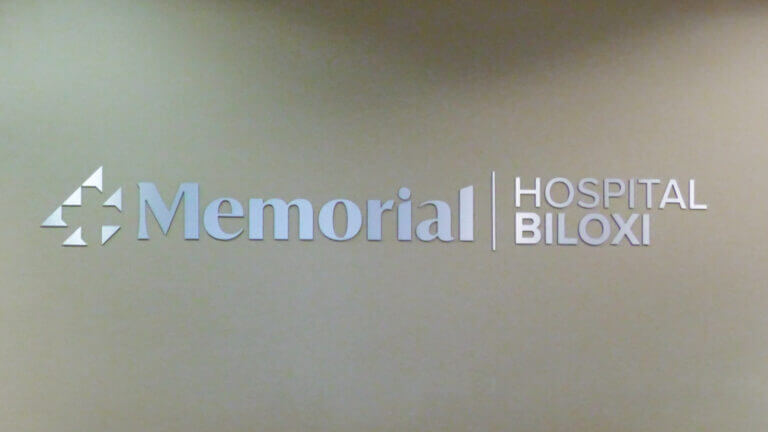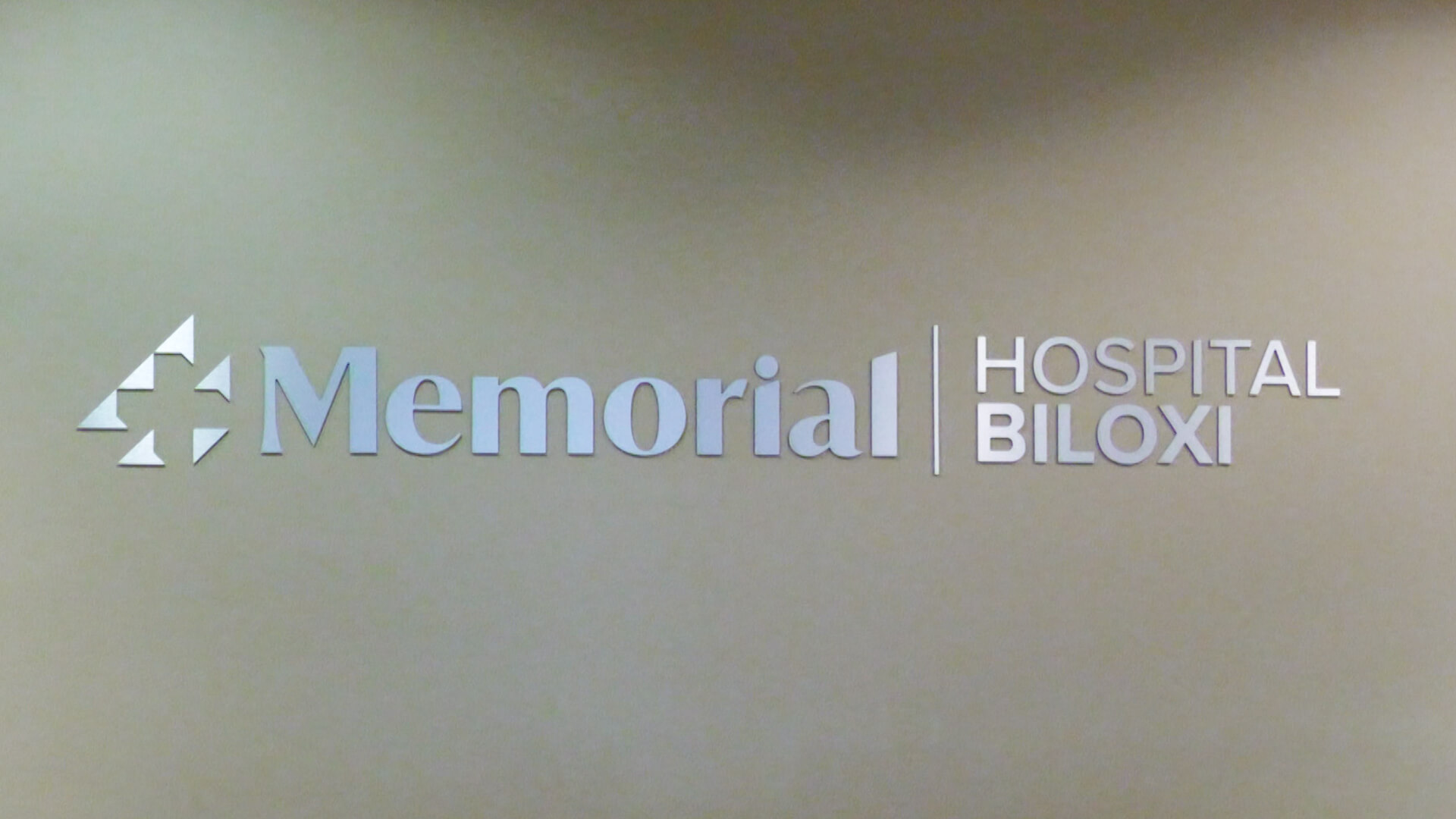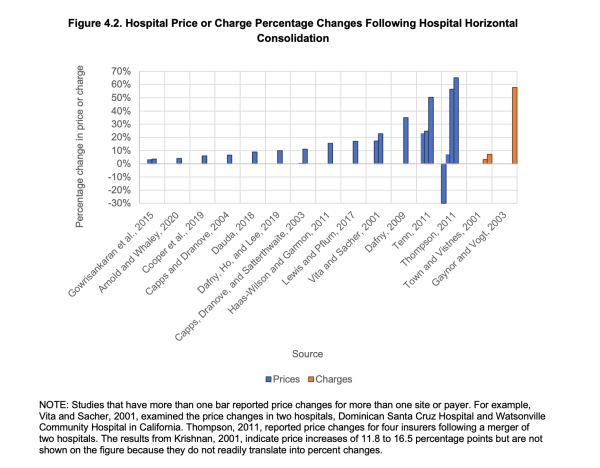

by Justin Glowacki with contributions from Rasheed Ambrose, Javion Henry, McKenna Klamm, Matt Martin and Aidan Tarrant
BILOXI – On Feb. 1, Memorial Health System officially took over Merit Health Biloxi, solidifying its position as the dominant healthcare provider in the region. According to Fitch Ratings, Memorial now controls more than 85% of the local health care market.
This isn’t Memorial’s first hospital acquisition. In 2019, it took over Stone County Hospital and expanded services. Memorial considers that transition a success and expects similar results in Biloxi.
However, health care experts caution that when one provider dominates a market, it can lead to higher prices and fewer options for patients.
Expanding specialty care and services

One of the biggest benefits of the acquisition, according to Kristian Spear, the new administrator of Memorial Hospital Biloxi, will be access to Memorial’s referral network.
By joining Memorial’s network, Biloxi patients will have access to more services, over 40 specialties and over 100 clinics.
“Everything that you can get at Gulfport, you will have access to here through the referral system,” Spear said.
One of the first improvements will be the reopening of the Radiation Oncology Clinic at Cedar Lake, which previously shut down due to “availability shortages,” though hospital administration did not expand on what that entailed.
“In the next few months, the community will see a difference,” Spear said. “We’re going to bring resources here that they haven’t had.”
Beyond specialty care, Memorial is also expanding hospital services and increasing capacity. Angela Benda, director of quality and performance improvement at Memorial Hospital Biloxi, said the hospital is focused on growth.
“We’re a 153-bed hospital, and we average a census of right now about 30 to 40 a day. It’s not that much, and so, the plan is just to grow and give more services,” Benda said. “So, we’re going to expand on the fifth floor, open up more beds, more admissions, more surgeries, more provider presence, especially around the specialties like cardiology and OB-GYN and just a few others like that.”
For patient Kenneth Pritchett, a Biloxi resident for over 30 years, those changes couldn’t come soon enough.

Pritchett, who was diagnosed with congestive heart failure, received treatment at Merit Health Biloxi. He currently sees a cardiologist in Cedar Lake, a 15-minute drive on the interstate. He says having a cardiologist in Biloxi would make a difference.
“Yes, it’d be very helpful if it was closer,” Pritchett said. “That’d be right across the track instead of going on the interstate.”
Beyond specialty services and expanded capacity, Memorial is upgrading medical equipment and renovating the hospital to improve both function and appearance. As far as a timeline for these changes, Memorial said, “We are taking time to assess the needs and will make adjustments that make sense for patient care and employee workflow as time and budget allow.”
Unanswered questions: insurance and staffing
As Memorial Health System takes over Merit Health Biloxi, two major questions remain:
- Will patients still be covered under the same insurance plans?
- Will current hospital staff keep their jobs?
Insurance Concerns
Memorial has not finalized agreements with all insurance providers and has not provided a timeline for when those agreements will be in place.
In a statement, the hospital said:
“Memorial recommends that patients contact their insurance provider to get their specific coverage questions answered. However, patients should always seek to get the care they need, and Memorial will work through the financial process with the payers and the patients afterward.”
We asked Memorial Health System how the insurance agreements were handled after it acquired Stone County Hospital. They said they had “no additional input.”
What about hospital staff?
According to Spear, Merit Health Biloxi had around 500 employees.
“A lot of the employees here have worked here for many, many years. They’re very loyal. I want to continue that, and I want them to come to me when they have any concerns, questions, and I want to work with this team together,” Spear said.
She explained that there will be a 90-day transitional period where all employees are integrated into Memorial Health System’s software.
“Employees are not going to notice much of a difference. They’re still going to come to work. They’re going to do their day-to-day job. Over the next few months, we will probably do some transitioning of their computer system. But that’s not going to be right away.”
The transition to new ownership also means Memorial will evaluate how the hospital is operated and determine if changes need to be made.
“As we get it and assess the different workflows and the different policies, there will be some changes to that over time. Just it’s going to take time to get in here and figure that out.”
During this 90-day period, Erin Rosetti, Communications Manager at Memorial Health System said, “Biloxi employees in good standing will transition to Memorial at the same pay rate and equivalent job title.”
Kent Nicaud, President and CEO of Memorial Health System, said in a statement that the hospital is committed to “supporting our staff and ensuring they are aligned with the long-term vision of our health system.”
What research says about hospital consolidations
While Memorial is promising improvements, larger trends in hospital mergers raise important questions.
Research published by the Rand Corporation, a nonprofit, nonpartisan research organization, found that research into hospital consolidations reported increased prices anywhere from 3.9% to 65%, even among nonprofit hospitals.

The impact on patient care is mixed. Some studies suggest merging hospitals can streamline services and improve efficiency. Others indicate mergers reduce competition, which can drive up costs without necessarily improving care.
When asked about potential changes to the cost of care, hospital leaders declined to comment until after negations with insurance companies are finalized, but did clarify Memorial’s “prices are set.”
“We have a proven record of being able to go into institutions and transform them,” said Angie Juzang, Vice President of Marketing and Community Relations at Memorial Health System.
When Memorial acquired Stone County Hospital, it expanded the emergency room to provide 24/7 emergency room coverage and renovated the interior.
When asked whether prices increased after the Stone County acquisition, Memorial responded:
“Our presence has expanded access to health care for everyone in Stone County and the surrounding communities. We are providing quality healthcare, regardless of a patient’s ability to pay.”
The response did not directly address whether prices went up — leaving the question unanswered.
The bigger picture: Hospital consolidations on the rise
According to health care consulting firm Kaufman Hall, hospital mergers and acquisitions are returning to pre-pandemic levels and are expected to increase through 2025.
Hospitals are seeking stronger financial partnerships to help expand services and remain stable in an uncertain health care market.

Source: Kaufman Hall M&A Review
Proponents of hospital consolidations argue mergers help hospitals operate more efficiently by:
- Sharing resources.
- Reducing overhead costs.
- Negotiating better supply pricing.
However, opponents warn few competitors in a market can:
- Reduce incentives to lower prices.
- Slow wage increases for hospital staff.
- Lessen the pressure to improve services.
Leemore Dafny, PhD, a professor at Harvard and former deputy director for health care and antitrust at the Federal Trade Commission’s Bureau of Economics, has studied hospital consolidations extensively.
In testimony before Congress, she warned: “When rivals merge, prices increase, and there’s scant evidence of improvements in the quality of care that patients receive. There is also a fair amount of evidence that quality of care decreases.”
Meanwhile, an American Hospital Association analysis found consolidations lead to a 3.3% reduction in annual operating expenses and a 3.7% reduction in revenue per patient.
The post Memorial Health System takes over Biloxi hospital, what will change? appeared first on Mississippi Today.
- UMMC keeps clinics closed and cancels elective procedures Monday and Tuesday amid recovery from cyberattack - February 22, 2026
- With school choice, what about the students left behind? - February 22, 2026
- Scott Colom raised most money, but Cindy Hyde-Smith has most cash before March primary - February 21, 2026